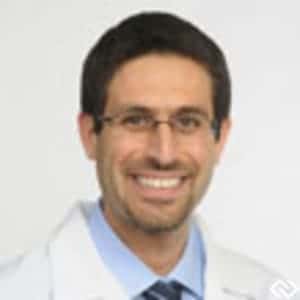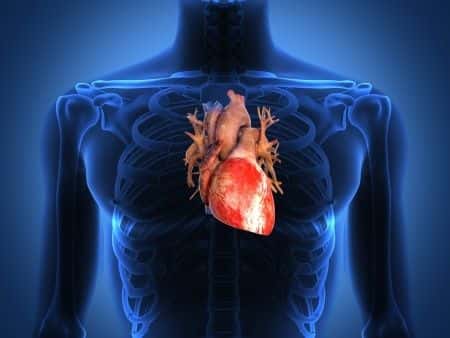Young Woman Dies From Heart Attack After Insufficient Testing
Updated on
This clinical cardiology case takes place in Illinois and involves a young female patient with an unremarkable medical history. On the date of the incident in question, she presented to the emergency department of her local hospital complaining of a burning sensation in her chest, unusually heavy sweating, and shortness of breath after jogging a few miles. The woman stopped her run immediately when these symptoms first manifested, and she noted that the symptoms persisted with minimal exertion from that time forward. After arriving at the hospital she was seen by the emergency room physician, who interviewed and examined her. As a part of his examination he conducted an echocardiogram, which found no abnormalities. After examining the patient, the emergency room physician diagnosed her with atypical chest pain and discharged her home. After she returned home, her symptoms continued over the course of several hours, and she presented to her primary care doctor, who instructed her to return to the emergency room. At the emergency room the patient was admitted and sent for a cardiac stress test. At some point during the test, the patient began to have weak pulses, abnormal heart rhythm, and extreme difficulty breathing. Shortly after these symptoms began the patient collapsed, and she died in the hospital a short time later.
Question(s) For Expert Witness
1. What is the proper workup for chest pain in the ED?
2. Is an echocardiogram adequate to rule out this result?
3. Was it possible the initial admission could have been a missed heart attack if troponins were not conducted?
Expert Witness Response E-008276
 The initial evaluation of any patient with complaints of chest pain should focus on establishing the likelihood that the complaints represent an acute coronary syndrome (ACS), as well as the likelihood of an adverse clinical event. The American Heart Association and the American College of Cardiology provide clear recommendations to categorize both of these parameters in low, intermediate, and high risk groups. Following a directed history and physical, the patient should receive an EKG within the first 10 minutes of presentation. Cardiac biomarkers (CKMB and Troponin) should also be drawn on presentation. If a diagnosis of ACS is not made at this point, the patient should be placed on cardiac monitoring in the hospital or a chest pain unit. The EKG and cardiac markers should be repeated at predetermined intervals until the diagnosis of ACS is ruled out - the time period for this is typically 6-12 hours, though it can be as low as 2 hours in certain populations. Patients that develop recurrent symptoms, EKG changes, or abnormal cardiac biomarkers should be admitted to the hospital for management of ACS. Patients that are pain free, have an EKG that is not consistent with ACS, and negative biomarkers can then proceed to stress testing. Stress testing can be performed prior to discharge under the care of an experienced physician. Alternatively, the patient may be discharged and return for stress testing within 72 hours. Patients discharged with a plan for outpatient stress testing should be prescribed precautionary medical therapy until they are cleared. An echocardiogram is not adequate to rule out unstable angina, and the fact that this was the only testing done on this patient represents a deviation from the standard of care. It is possible the initial admission could have been a missed MI if troponins were not conducted. Troponins have a low sensitivity to detect the very early phase of a myocardial infarction (less than 6 hours from symptom onset) and need to be repeated at 8-12 hours after symptom onset to rule out myocardial infarction.
The initial evaluation of any patient with complaints of chest pain should focus on establishing the likelihood that the complaints represent an acute coronary syndrome (ACS), as well as the likelihood of an adverse clinical event. The American Heart Association and the American College of Cardiology provide clear recommendations to categorize both of these parameters in low, intermediate, and high risk groups. Following a directed history and physical, the patient should receive an EKG within the first 10 minutes of presentation. Cardiac biomarkers (CKMB and Troponin) should also be drawn on presentation. If a diagnosis of ACS is not made at this point, the patient should be placed on cardiac monitoring in the hospital or a chest pain unit. The EKG and cardiac markers should be repeated at predetermined intervals until the diagnosis of ACS is ruled out - the time period for this is typically 6-12 hours, though it can be as low as 2 hours in certain populations. Patients that develop recurrent symptoms, EKG changes, or abnormal cardiac biomarkers should be admitted to the hospital for management of ACS. Patients that are pain free, have an EKG that is not consistent with ACS, and negative biomarkers can then proceed to stress testing. Stress testing can be performed prior to discharge under the care of an experienced physician. Alternatively, the patient may be discharged and return for stress testing within 72 hours. Patients discharged with a plan for outpatient stress testing should be prescribed precautionary medical therapy until they are cleared. An echocardiogram is not adequate to rule out unstable angina, and the fact that this was the only testing done on this patient represents a deviation from the standard of care. It is possible the initial admission could have been a missed MI if troponins were not conducted. Troponins have a low sensitivity to detect the very early phase of a myocardial infarction (less than 6 hours from symptom onset) and need to be repeated at 8-12 hours after symptom onset to rule out myocardial infarction.
About the author
Joseph O'Neill
Joe has extensive experience in online journalism and technical writing across a range of legal topics, including personal injury, meidcal malpractice, mass torts, consumer litigation, commercial litigation, and more. Joe spent close to six years working at Expert Institute, finishing up his role here as Director of Marketing. He has considerable knowledge across an array of legal topics pertaining to expert witnesses. Currently, Joe servces as Owner and Demand Generation Consultant at LightSail Consulting.
Subscribe to our newsletter
Join our newsletter to stay up to date on legal news, insights and product updates from Expert Institute.
Sign up nowFind an expert witness near you
What State is your case in?
Subscribe to our newsletter
Join our newsletter to stay up to date on legal news, insights and product updates from Expert Institute.



